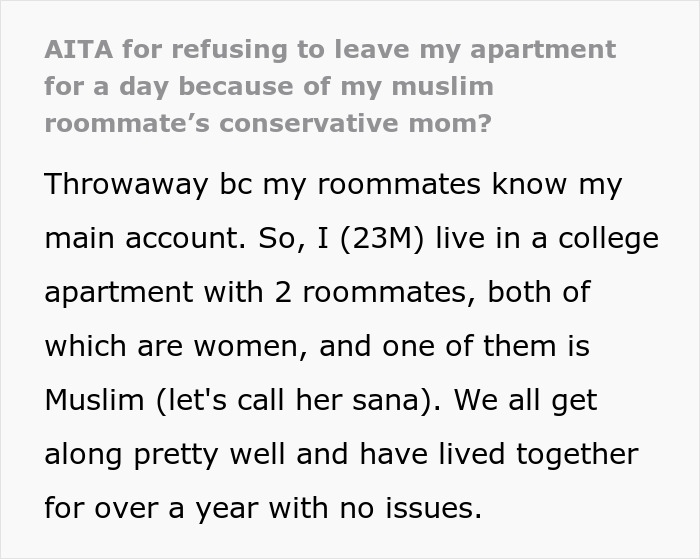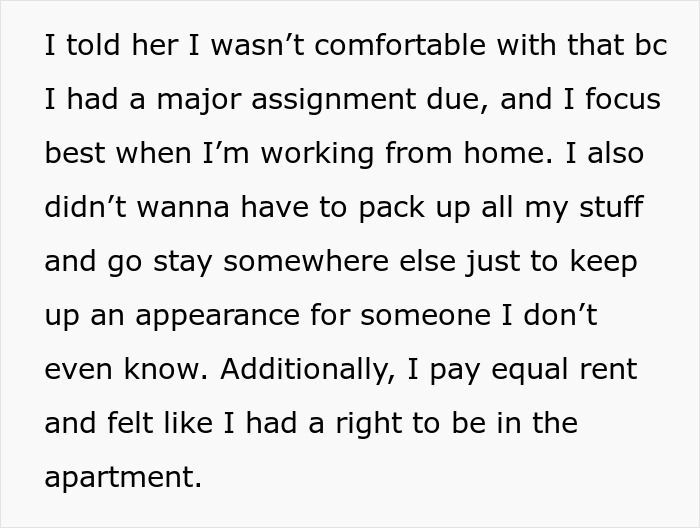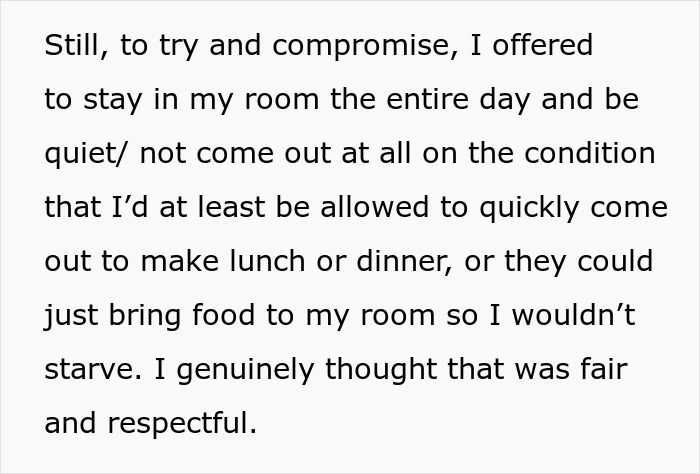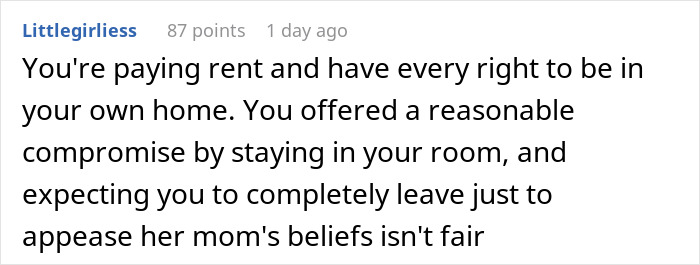In 2019, the Pew Research Center found that Muslims make up only 1% of the adult population. In 2025, Muslim Americans are the most likely out of all religiously affiliated adults to be college students. Around 30% of U.S. Muslims are currently studying in college. And often, they face unique challenges.
This young student had a conservative mother, and knew she would be upset to find out that her daughter is roommates with a man. To keep it from her, she asked the guy to crash somewhere else for one night during the mom’s visit. But the roommate didn’t feel that was fair, so, he decided to ask for opinions online: was he not seeing the situation clearly?
A Muslim roommate asked a guy to leave for one night because her conservative mother was visiting

Image credits: nd3000 (not the actual photo)
Thinking that getting kicked out of his own apartment was unfair, he refused, and offered alternatives







Image credits: Prostock-studio (not the actual photo)





Image credits: waynekinnaird
Young Muslim Americans are way more liberal than their parents’ generation
It’s not surprising that parents are more conservative or religious than their college-age children. And while some might expect Muslim youth to be almost or just as religiously devout and conservative, it’s quite the opposite, in fact.
According to the 2017 survey by the Institute for Social Policy and Understanding (ISPU), the majority of Muslim young people are quite left-leaning in their political opinions. In the 2016 election, only 15% of U.S. Muslims wanted Trump to win over Hillary Clinton. What’s more, a whopping 27% would have preferred Bernie Sanders as the next POTUS.
What’s even more surprising is how young most American Muslims are. According to Pew, a third of all Muslims in the U.S. are under 30, while ISPU estimates that it’s around 37%. However, just because they’re young and politically liberal, doesn’t mean that religion isn’t important to them.
A whopping 91% of U.S. Muslims aged 19-29 saw religion as an important part of their lives right after the 2016 election, but only one-third attended religious services every week. In 2025, 86% of all American Muslims still view religion as important or very important.
Perhaps the commenters who suggested the roommate show “Sana” some grace and concede were on to something. Having strictly religious parents in modern societies can be harder than those who are religiously unaffiliated imagine. As one commenter wrote, perhaps she’s just navigating how not to lose her family.

Image credits: cottonbro studio (not the actual photo)
Almost half of American college students have had beef with their roommates
When you’re sharing a house or an apartment with roommates, conflicts are almost inevitable. According to one study, 47.9% of college students complain of having “frequent” or “occasional” conflicts with their roommates.
Experts point out how important it is to talk things out when conflicts arise. Even in this case, “Sana” could’ve explained her situation further, saying what compassionate commenters wrote in the comments. That way, the roommate might’ve understood the root of the issue and why her request isn’t based in entitlement, but also has a lot of cultural and religious weight behind it.
When discussing such issues with your roommate, experts advise to use “I” statements. “This approach helps engage the prefrontal cortex rather than triggering the amygdala, which is responsible for fear responses,” Cheryl Groskopf, LMFT, LPCC, told VeryWell Mind.
The experts at Mental Health America recommend developing a solution together. When both are willing to consider the question “What should we do?” and compromise, it might not feel so unfair.
In this situation, “Sana” may offer something in exchange for her roommate spending the night somewhere else: taking over his cleaning duties for a week, crashing somewhere else herself when he has guests over the next time, or making him lunch/dinner for all of next week.
Groskopf emphasizes that people generally tend to want a peaceful home and don’t create drama out of thin air. “Recognizing shared goals can help shift the focus from individual complaints to mutual benefits. This creates a collaborative atmosphere where both parties work towards a common good,” she says.

Image credits: cottonbro studio (not the actual photo)
Some commenters pleaded the roommate to be understanding: “She’s trying to break away from a very controlling upbringing”




Others weren’t so compassionate: “It’s her issue [and] she needs to solve it with her family”























 Follow Us
Follow Us





